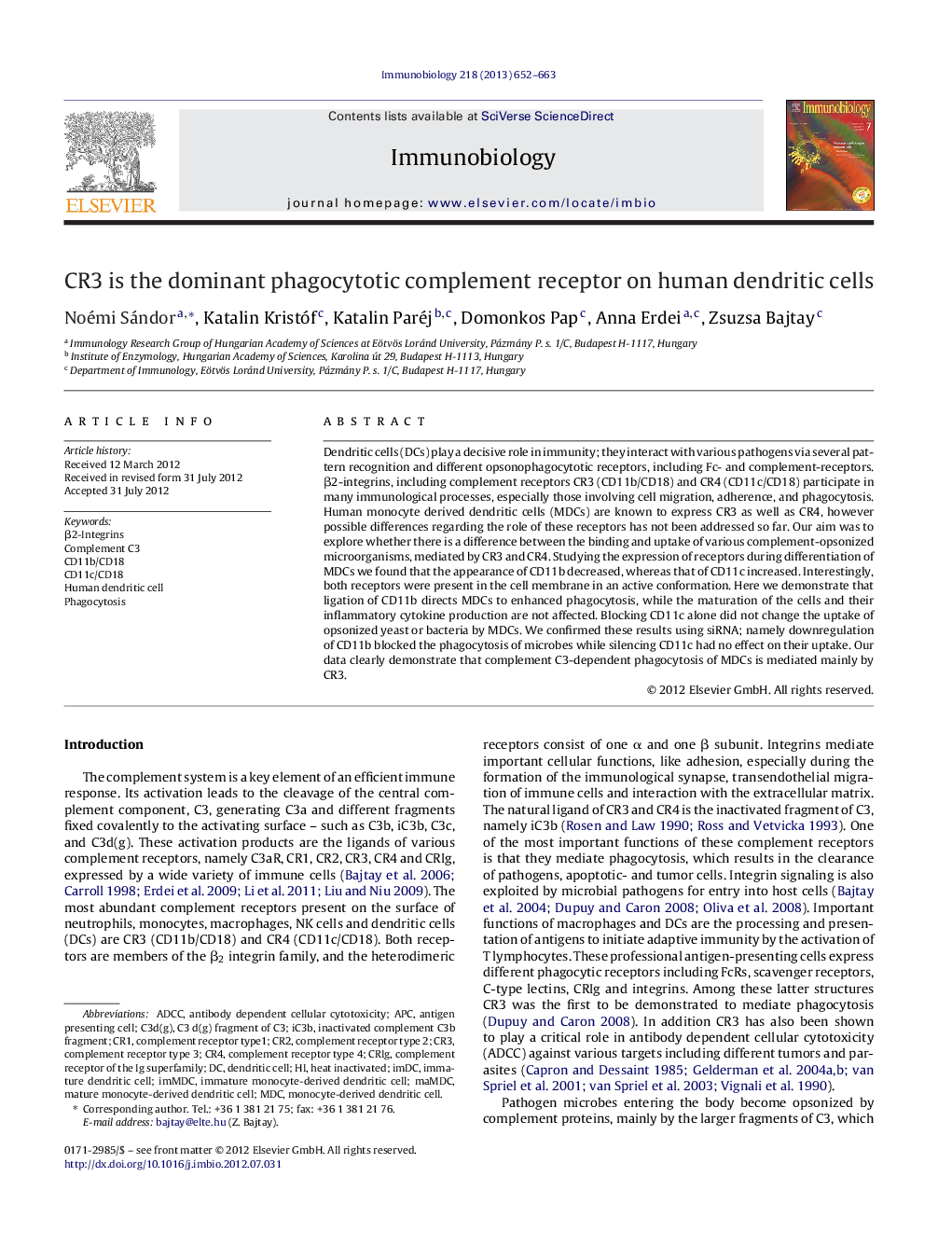| کد مقاله | کد نشریه | سال انتشار | مقاله انگلیسی | نسخه تمام متن |
|---|---|---|---|---|
| 10941038 | 1095548 | 2013 | 12 صفحه PDF | دانلود رایگان |
عنوان انگلیسی مقاله ISI
CR3 is the dominant phagocytotic complement receptor on human dendritic cells
دانلود مقاله + سفارش ترجمه
دانلود مقاله ISI انگلیسی
رایگان برای ایرانیان
کلمات کلیدی
CR1β2-IntegrinsiC3bCR4CRIgCR3ADCCCR2MDCAPCCD11b/CD18 - CD11b / CD18ImDc - Imdantibody dependent cellular cytotoxicity - آنتی بادی سمیت سلولی سلولی وابسته استComplement C3 - تکمیل C3Human dendritic cell - سلول انسانی انسانیDendritic cell - سلول دندریتیکImmature dendritic cell - سلول دندریتیک نامرغوبMonocyte-derived dendritic cell - سلولهای دندانیایی مونوسیتantigen presenting cell - سلولهای پردازنده آنتیژنPhagocytosis - فاگوسیتوز یا بیگانهخواری complement receptor type 3 - نوع گیرنده مکمل 3heat inactivated - گرما غیرفعال شده استcomplement receptor type 2 - گیرنده نوع دوم مکمل
موضوعات مرتبط
علوم زیستی و بیوفناوری
بیوشیمی، ژنتیک و زیست شناسی مولکولی
بیولوژی سلول
پیش نمایش صفحه اول مقاله

چکیده انگلیسی
Dendritic cells (DCs) play a decisive role in immunity; they interact with various pathogens via several pattern recognition and different opsonophagocytotic receptors, including Fc- and complement-receptors. β2-integrins, including complement receptors CR3 (CD11b/CD18) and CR4 (CD11c/CD18) participate in many immunological processes, especially those involving cell migration, adherence, and phagocytosis. Human monocyte derived dendritic cells (MDCs) are known to express CR3 as well as CR4, however possible differences regarding the role of these receptors has not been addressed so far. Our aim was to explore whether there is a difference between the binding and uptake of various complement-opsonized microorganisms, mediated by CR3 and CR4. Studying the expression of receptors during differentiation of MDCs we found that the appearance of CD11b decreased, whereas that of CD11c increased. Interestingly, both receptors were present in the cell membrane in an active conformation. Here we demonstrate that ligation of CD11b directs MDCs to enhanced phagocytosis, while the maturation of the cells and their inflammatory cytokine production are not affected. Blocking CD11c alone did not change the uptake of opsonized yeast or bacteria by MDCs. We confirmed these results using siRNA; namely downregulation of CD11b blocked the phagocytosis of microbes while silencing CD11c had no effect on their uptake. Our data clearly demonstrate that complement C3-dependent phagocytosis of MDCs is mediated mainly by CR3.
ناشر
Database: Elsevier - ScienceDirect (ساینس دایرکت)
Journal: Immunobiology - Volume 218, Issue 4, April 2013, Pages 652-663
Journal: Immunobiology - Volume 218, Issue 4, April 2013, Pages 652-663
نویسندگان
Noémi Sándor, Katalin Kristóf, Katalin Paréj, Domonkos Pap, Anna Erdei, Zsuzsa Bajtay,